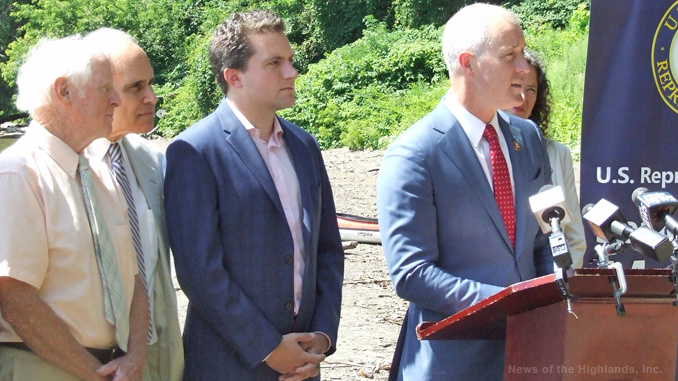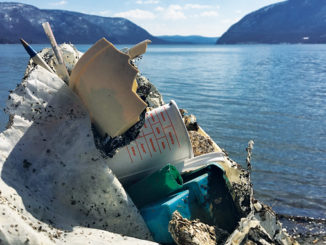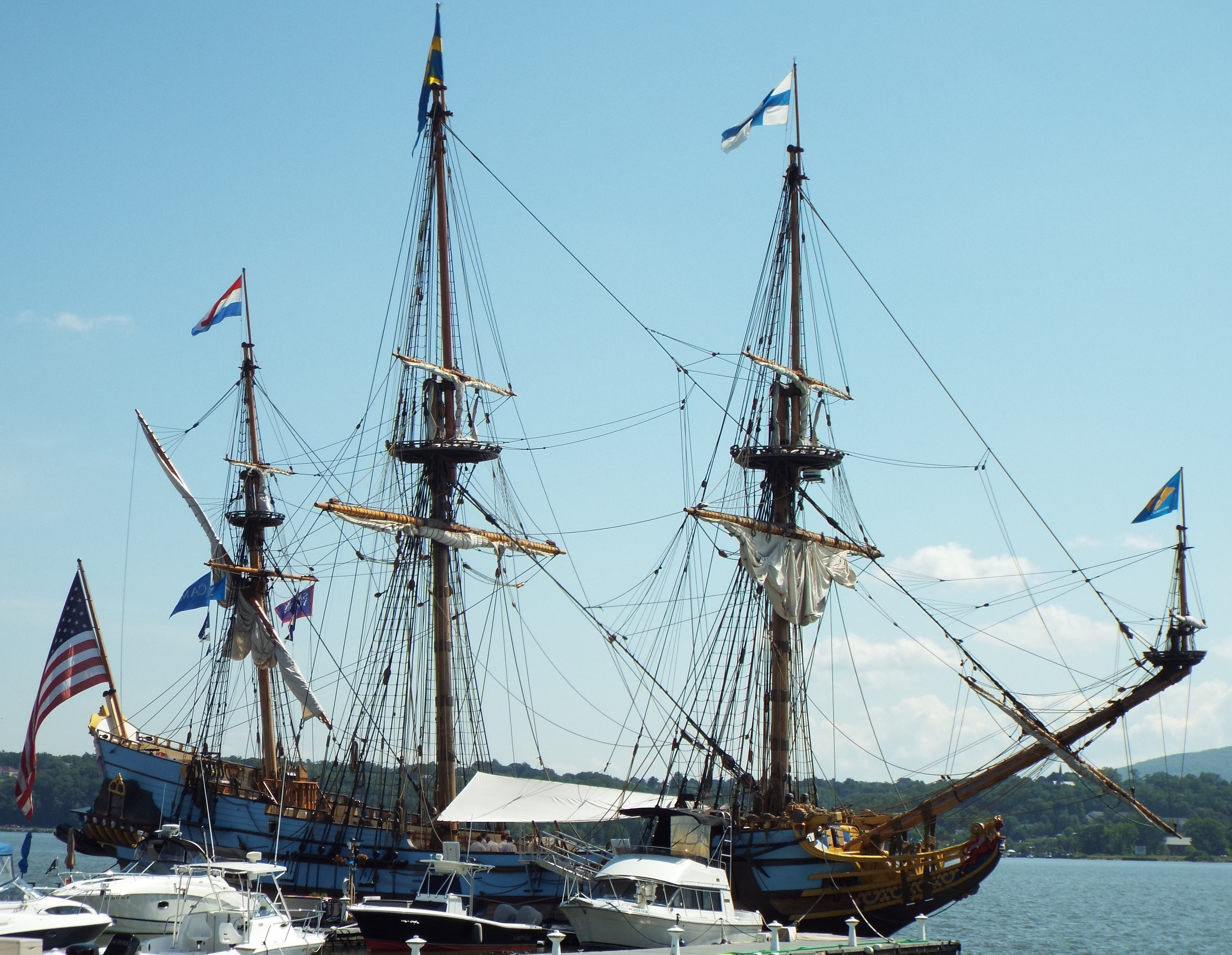
The Hudson River has been described as the bloodline of New York State and one of our most precious resources from a historical, visual, ecological, and economical standpoint. The river encourages swimming, fishing, boating, and kayaking, but when a proposal from the United States Coast Guard threatened all that, local and state officials stepped up to ban oil barge anchorages.
On Aug. 1, Rep. Sean Patrick Maloney held a press conference, at the Kowawese Unique Area at Plum Point, in New Windsor, to announce the House passage of the Coast Guard Authorization Act.
Three years ago, officials like Maloney, Senator James Skoufis, and Cornwall-on-Hudson Mayor Brendan Coyne stood slightly upstream from where they were last week to speak out against the Coast Guard’s proposal for 43 berths (allotted places for ships) at 10 new anchorage sites along the river.
At the time, the Coast Guard cited safety as the reason for the proposal. The new locations were to allow commercial vessels to anchor in the event of ice or bad weather.
Although public comments could be submitted to the Coast Guard, Maloney, and others, spoke in favor of public hearings, as well as an environmental impact study to determine the effect these anchorages would have on communities using the river as a recreational resource.
The response from the public was overwhelming as 10,000 residents submitted comments. After Maloney was re-elected, he was named chairman of the Coast Guard subcommittee where he helped draft a law permanently banning all oil barge anchorage sites between Kingston and Yonkers.
Although there are existing sites below Yonkers and north of Kingston, the bill will also require a 180-day notice of any new oil barge storage sites to allow time for House representatives to review the proposal.
To be fair to the maritime industry, the bill also reiterates a law which has always been on the books – making exceptions for anchoring on a temporary basis when the safety of the crew, craft, or cargo is at stake.
Finally, the bill commissions a federal study, through the existing Hudson River Safety Navigation Operations Committee, to create more awareness about the nature, risks, and benefits of commercial activity on the river.
“This would have created an archipelago of oil barge storage sites on the Hudson River and it would have threatened the economic development model of cities like Poughkeepsie, Newburgh, and so many communities along the river that have redeveloped and reimagined themselves as communities that celebrate the beauty of the river and use it for recreation,” said Maloney.
The Village of Cornwall-on-Hudson recently filed a consolidated funding application in the hopes of revitalizing its waterfront.
The bill is expected to be taken up by the Senate sometime in September and will then need to be signed by the president.



